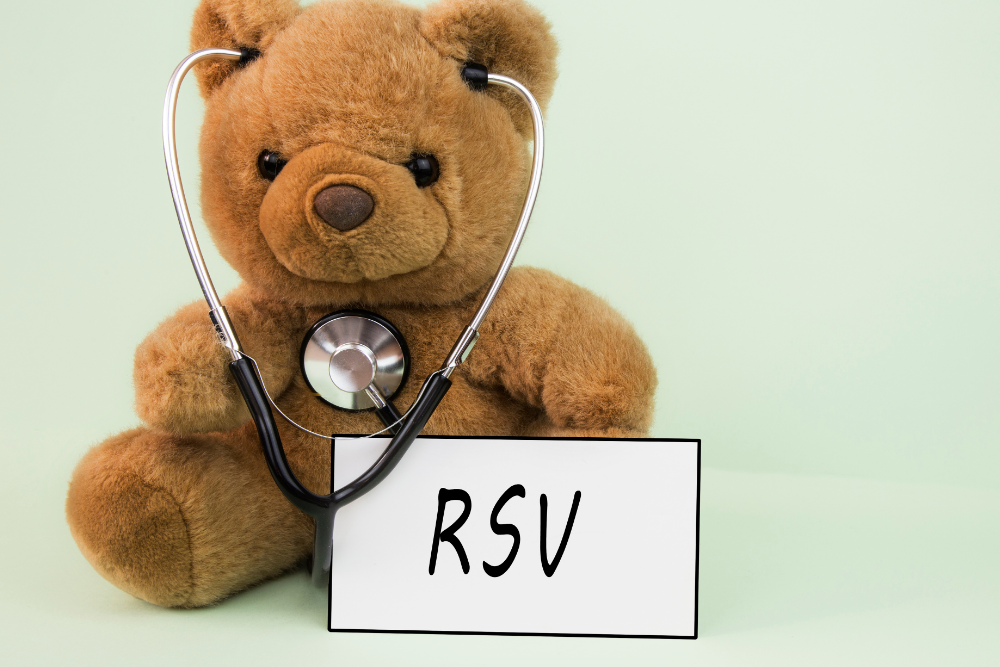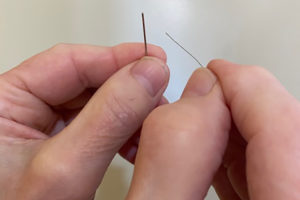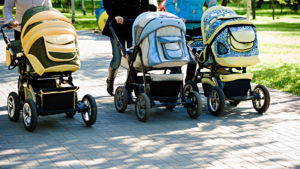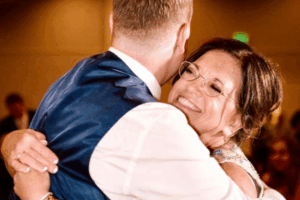Every winter, we brace ourselves for the impact of cold and flu season. Clinics fill with children and infants with runny noses, coughs and congestion. Hospitals have children admitted for dehydration, vomiting or difficult breathing – among other problems. For some of these illnesses, children need antibiotics or other medications. But for the vast majority, these illnesses are caused by viruses and don’t have specific treatment other than managing symptoms. These viruses are quick to spread and can be slow to recover from. One of these viruses is called RSV, or respiratory syncytial virus.
What is RSV?
RSV is a common, contagious virus that spreads when virus droplets contact the eyes, nose or mouth. Virus droplets can spread through the air with a cough or a sneeze, and by contact when someone touches an infected surface like a toy or doorknob and then touches their face. For most, RSV is mild and causes symptoms of fever, cough, congestion and runny nose. But for those who are immunocompromised, elderly or very young – like premature infants and babies – RSV can cause a severe infection that can be quite serious. In addition to the common symptoms, infants and young children might have trouble eating or drinking because of excess mucous production. Infants and vulnerable children, such as those with lung or heart disease, can develop more aggressive symptoms – most notably, difficulty breathing.
What are symptoms of RSV and when should I see medical care?
If symptoms are mild and you’re worried, it’s never wrong to call your doctor or schedule an appointment to be seen. Symptoms that require immediate attention include:
- A fever is over 100.4 degrees Fahrenheit and above in a baby less than two months old
- Inability to eat or drink
- Less than three wet diapers or bowel movements in a 24-hour period
- Decreased activity or alertness
- Difficulty breathing
Additionally, signs that your child may have respiratory distress and need to see a healthcare professional include:
- Breathing quicker than normal
- Using extra muscles to breath – you see movement of their throat, ribs or belly
- Flaring of the nostrils with each breath
- Periods of time without breathing (apnea)
- Wheezing, gasping for air or grunting with each breath
- Any color changes of the face and chest – such as blue, purple or gray
How is RSV treated?
If a child is admitted to the hospital for RSV, treatment usually includes oxygen through a mask or nasal prongs, suctioning of excess mucous from the nose or mouth, and intravenous (IV) fluids for hydration. Over-the-counter medications such as acetaminophen or ibuprofen (if older than six months of age) can help reduce fever and discomfort.
How can I help protect my child and family from RSV?
Is any of this preventable? For some – yes! Practicing healthy hygiene – like washing your hands, cleaning toys, bottles and pacifiers, and trying to avoid germs when possible really helps. If your child is ill, even if symptoms are mild, staying home prevents the spread of germs. And thankfully, we now have access to medication to aid in PREVENTION of RSV!
Is my child eligible to receive RSV antibodies (Beyfortus)?
Nirsevimab (Beyfortus) is an RSV antibody given to newborns and infants during their first RSV season. If a woman gives birth to a baby at Bryan and she did not receive the RSV Vaccine (Abrysvo) during pregnancy, her baby is eligible for Beyfortus. Children up to two years old with specific vulnerability to severe RSV disease during their second RSV season are eligible as well.
How do the RSV antibodies (Beyfortus) work?
Beyfortus is an injectable medication for RSV antibodies that provides immediate immunity to RSV for up to five months after administration. Antibodies are what the body creates naturally to fight infections. With Beyfortus, the antibodies are immediately available to fight RSV should the infant be exposed to the virus. Studies have shown that Beyfortus reduces the risk of hospitalization by nearly 80-96 percent! Please ask your child’s doctor if they are able to receive Beyfortus.
I wish everyone a healthy & warm winter!
In conclusion, for most people RSV is a mild illness that’s inconvenient. For others, particularly young infants, children and the elderly – RSV can be quite serious. To help prevent the spread or contraction of serious illness, wash your hands, keep toys and pacifiers clean, and keep children home if they are ill. Ask your child’s doctor if your infant or child qualifies for Beyfortus (RSV antibodies). I wish everyone a healthy and warm winter!
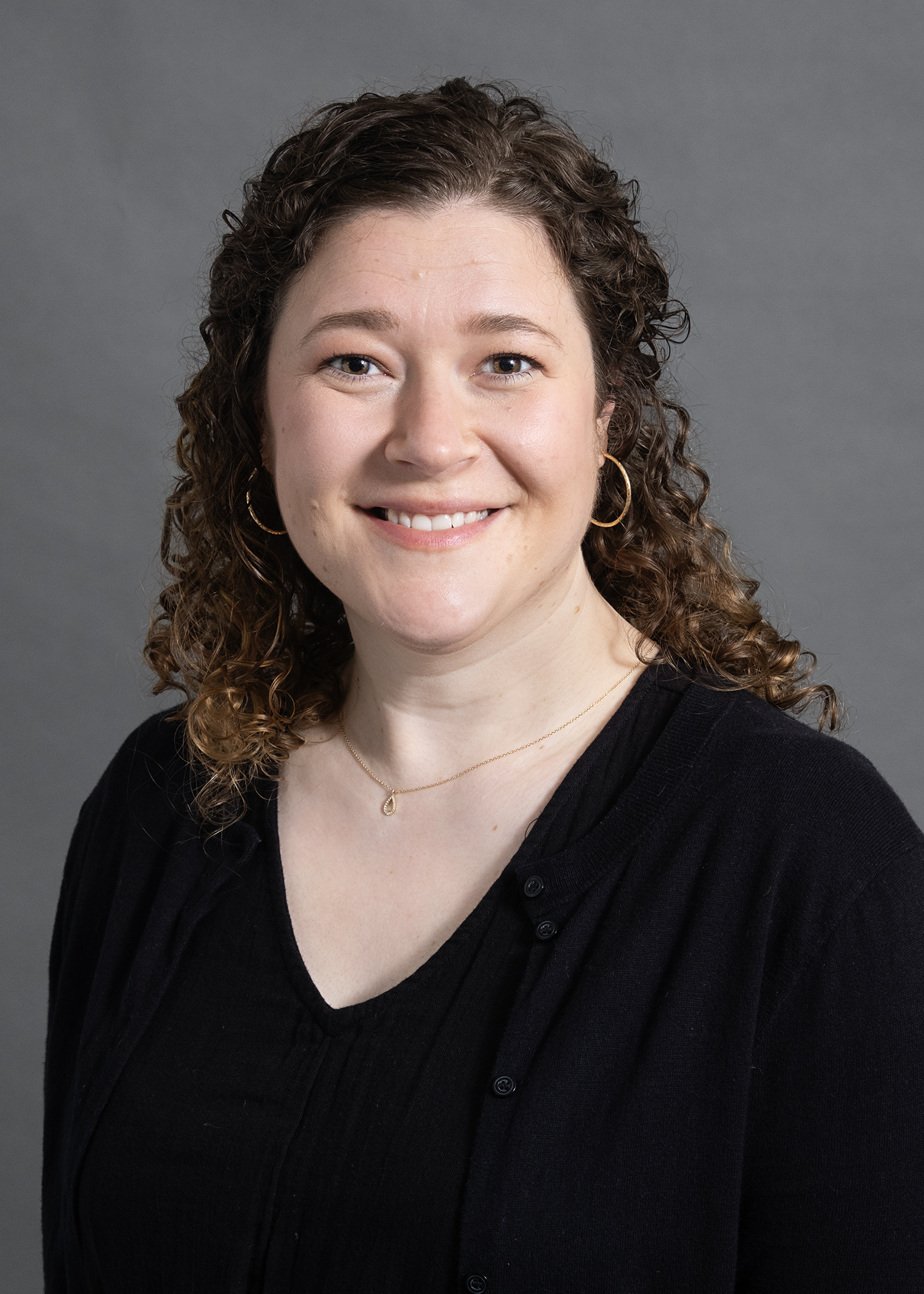
Danielle Thiessen, DO
Pediatric Hospitalist, Bryan Pediatrics


